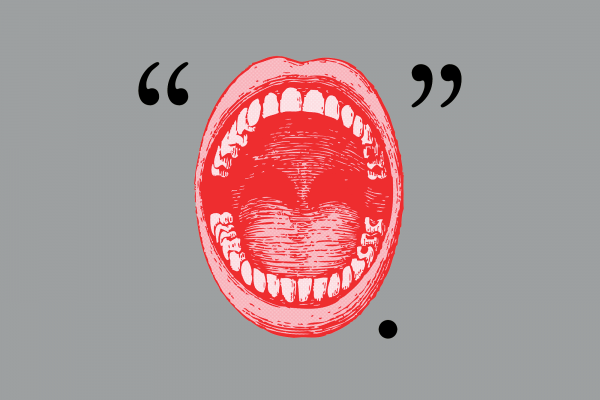“NO” IS A COMPLETE SENTENCE. I said it recently to a U.S. Capitol Police officer when he asked me to stop praying the rosary for immigrant children and to move. He then arrested me for “crowding, obstructing, or incommoding” in the rotunda of the Russell Senate Office Building in D.C.
That day the police arrested 71 Catholics. In the parlance of Christian nonviolence, we brought the spiritual power of our prayer to a site of mortal sin—specifically the offices of powerful lawmakers who support, through cowardly and often deliberate consent, caging immigrant children. The border patrol apprehended 69,157 such children at the U.S.-Mexico boundary between October 2018 and July 2019, seven of whom have died after being in federal custody.
What is the significance of Catholics and other Christians saying “no”? At its most authentic, religious faith builds moral muscles that push the human species to become more generous and just and guard against it backsliding into barbarity. While shallow religion shapes people for instinctive compliance to authority, ecclesial and secular, a deep faith tradition trains for moral discernment and formation of conscience and provides a narrative for how to resist immoral actions.
When the legitimate authority of the state implements immoral legislation and tacitly supports inhuman practices on a broad scale (as the current administration is doing with immigration), it creates a moral dilemma in the citizenry. Is this practice right or wrong? When the lives of children are at risk or families feel threatened, then the moral tension created by the dilemma skyrockets. That tension seeks an outlet—sometimes in the form of a weapon.
For Catholics and people of many other faiths, the weapon of choice is a moral one, a nonviolent one. Children in cages is wrong. Actions that produced this result must be resisted. As Mexican sociologist Myriam Fracchia Figueiredo writes, “To disobey an inhuman order, that is, an order that exerts harm on another or on oneself, is a moral weapon, and the greatest challenge posed by nonviolent action.”
How can we make the moral tension observable to our opponents? In the Catholic tradition, the rosary is a beautiful, ancient prayer of “yes” to God. It also has long been a weapon of choice in wrestling with, correcting, and pushing toward the redemption of the powers and principalities. In the Russell Building rotunda, the Hail Marys and Our Fathers of a few hundred people echoed down marble corridors to Senate offices. We replaced the traditional scripture of the five Sorrowful Mysteries with excerpts of testimonies from more than 60 minors held in U.S. Border Patrol custody.
We brought pictures of incarcerated children to the place where senators research and prepare policy. We pierced the legislators’ protective bubble by appearing in their space and by humanizing the moral struggle. We revealed our “dignified rage.” We urged them to return to their moral duty and reminded them that their legitimacy relies on our consent.
A few days after my release, a neighbor introduced me to her grandson, recently arrived from El Salvador. I learned he had spent three months walking to the U.S. border and five weeks in detention facilities in Texas. He is 15 years old.
As people of authentic religious faith, we are inheritors of a great moral reserve. If we don’t use it when it is most needed, we lose it.
When an authority issues an inhuman order, ask what action your community can take to demonstrate dissent. Reply in a complete sentence.

Got something to say about what you're reading? We value your feedback!







